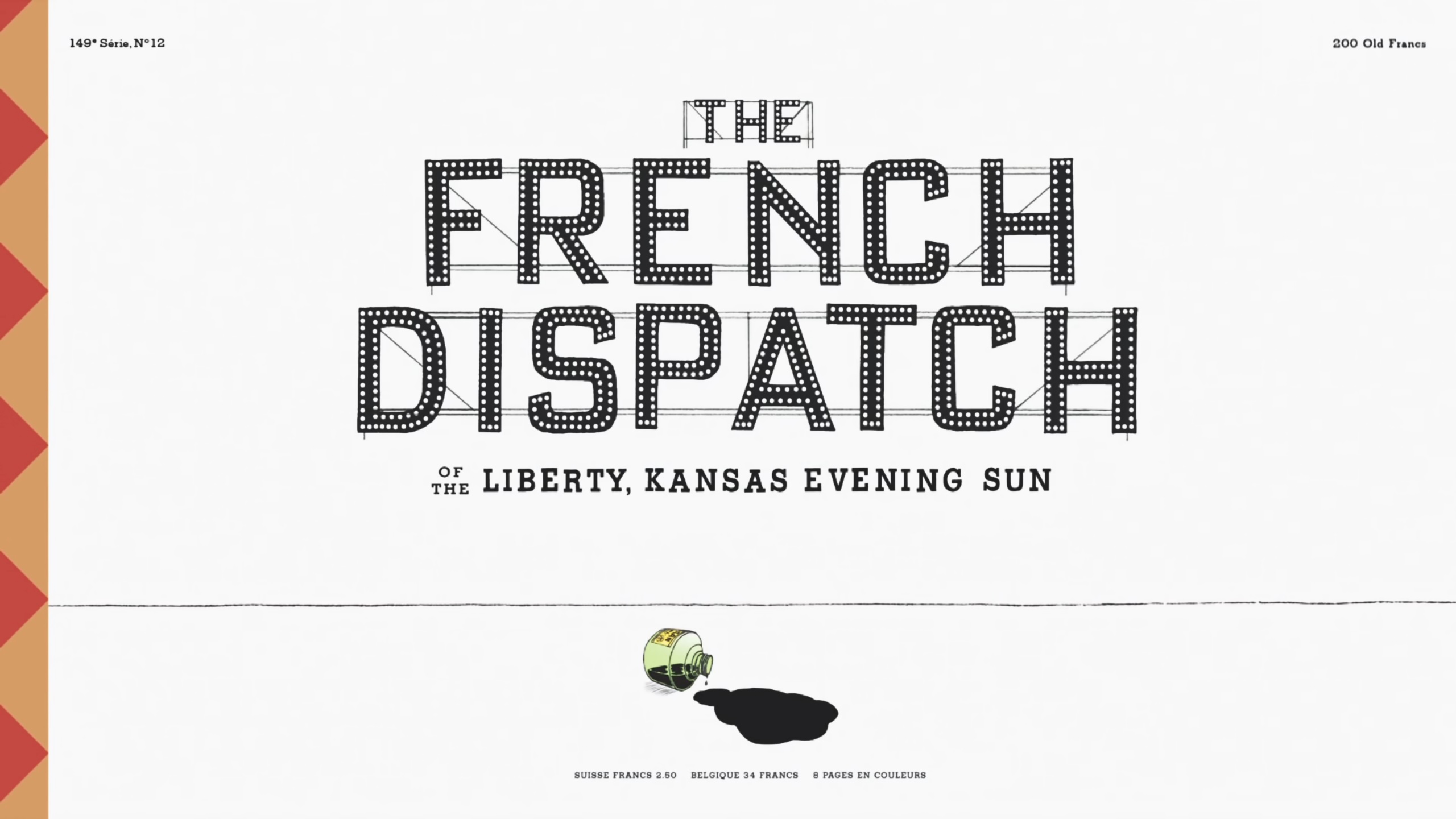Soundtrack Review: The French Dispatch

Amy Clarke reviews the soundtrack to Wes Anderson’s new film, The French Dispatch.
Wes Anderson is iconic (and I use that word in the least Gen-Z way I can) and so too are his films. He’s a real ‘auteur’ who has glimmers of himself in every movie, whether it’s his resemblance to the protagonist (think over-ambitious fox in a tweed suit) or constantly referencing the things he loves. His latest film, The French Dispatch “brings to life a collection of stories from the final issue of an American magazine published in a fictional 20th-century French city” and it can be said that Anderson is a collector himself; of characters, themes, words, but most importantly, one of songs. The soundtrack collects songs from an array of genres from different eras in the twentieth century, from the 30s accordion tune of Gus Viseur to Grace Jones’ electronic I’ve Seen That Face Before (Libertango). The French Dispatch soundtrack constructs a nostalgic ode to the past of freedom and fun.
It’s interesting to note the opening, with Gene Austin’s 1931 rendition of ‘After You’ve Gone’. A typically American tune with a twanging banjo makes for a sound of optimism, but with lyrics, including ‘How can you leave me?/ Can you see my tears?’, it creates the impression of a farewell song. It marks the fictitious expat American journalists in the film who have gone to France, leaving their culture behind for a new one, saying goodbye. It demonstrates what Anderson films tend to do best: present deep human emotion, light-heartedly.
From then on, the soundtrack leaves the traces of America at its first song and adopts the voice of the francophone. The French Dispatch has been described as a love letter to France but perhaps, (if we’re being very European), it is actually more of an American’s love letter to the romanticised idea of a France of the past. This is far from being a criticism however. In fact, Anderson’s films are a great example of playful art that provide comfort and the soundtrack aids this beautifully with its romantic and nostalgic atmosphere.
Some key tracks on the album are Chantal Gaya’s ‘Tu m’a Trop Menti’ and Charles Aznavour’s J’en deduis que je t’aime’, songs emblematic of 60s France and the Ye-Ye pop genre that saw the rise of Brigitte Bardot, Francoise Hardy and Serge Gainsbourg. The music movement that was fronted by fresh faces and featured in countless New Wave films plays a part of the glamorous image of France that many foreigners have and is a reason why the country is so often romanticized by Francophiles today. Anderson’s nod to this time in French culture very much sets up the film as being an idealised depiction of the country he loves so dearly.
unashamedly captures the essence of an American’s dream of Europe
However, as a playful artist, Anderson is self-aware. Collaborating with Jarvis Cocker for not only a song but an entire companion album ‘Chansons d’Ennui’ seems a symbolic move. ‘Aline’ which features in the film as a song by a fictitious French singer ‘TipTop’ is Cocker’s very British self, singing in French. It details a man yearning for his loved one to return to him and with Cocker’s Gainsbourg-esque voice, the lyrics have a desperation to them. Not only does the song have a wonderfully cinematic drama to it, provided by haunting backing vocals, but Cocker’s performance represents something for the director too. Here we have a very Anglophone man, attempting to sing in French, about a deep desire of his. Anderson, with The French Dispatch, is an American, desperate to re-create a culture he cannot assimilate into but desperately wishes to capture. This self reference is what makes the soundtrack so incredibly clever and so incredibly Wes.
Finally, no Anderson film is complete without its score, where often the most crucial moments of tension are built or the most tender scenes are created by composer Andre Desplat. Whilst it’s frankly miles off the heart-warming score of previous films such as Fantastic Mr Fox, a sense of story can still be heard through the plodding harpsichord opening of ‘Obituary’ to the stressful swinging bass of ‘Animated Car Chase’ and ‘Kidnapper’s Lair’. Despite the lack of comforting joy normally seen in soundtracks from Anderson’s films, it does still retain oddities and peculiarities fitting for his oddball characters.
What’s so wonderful about this soundtrack is that it doesn’t hide its romanticism and its idealism. It unashamedly captures the essence of an American’s dream of Europe and makes anyone listening longing for it too, whilst giving cinephiles the tropes of a strange yet beloved Wes Anderson film.


